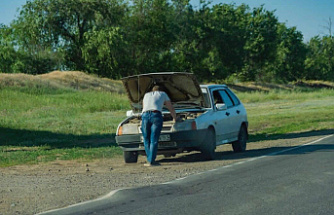Comedy needs stereotypes. Hardly a topic provides a wider stage than the idea of home. The experience, the potential for conflict of the term is to be reduced, the more the narrative is in the past, and an autobiographical Moment is able to vote in those mild, which react rather allergic to Stereotypes. A story that has seen the artist himself so, but it can hardly be put in a drawer. Good conditions for George Agathonikiadis' Comedy, "My uncle Archimedes", the uses of the gimmick to tell from the children's perspective.
The story begins in 1949, with three hundred partisans in a train into the Unknown. After the lost civil war, the Greek Communists in their home country are no longer safe. While foreign have Enjoyed them cheering from afar, willingly, and keeps the enthusiasm in borders, as it is suddenly about you to take in. "Three Hundred Greeks? Now don't tell me that their leader Leonidas is called“ murmurs in the town hall of Brno in Czechoslovakia, before the Statue of Lenin is asked for advice. The inspiration comes In the confiscated Villa of a Jewish factory owner in the space, there are only a couple of prostitutes living in involuntary break from work. It takes a day, until partisans and whores lie to the sound of the Bouzouki in the poor, omitted, but harmless as a child imagines it to be so.
Date Of Update: 24 July 2020, 15:19











